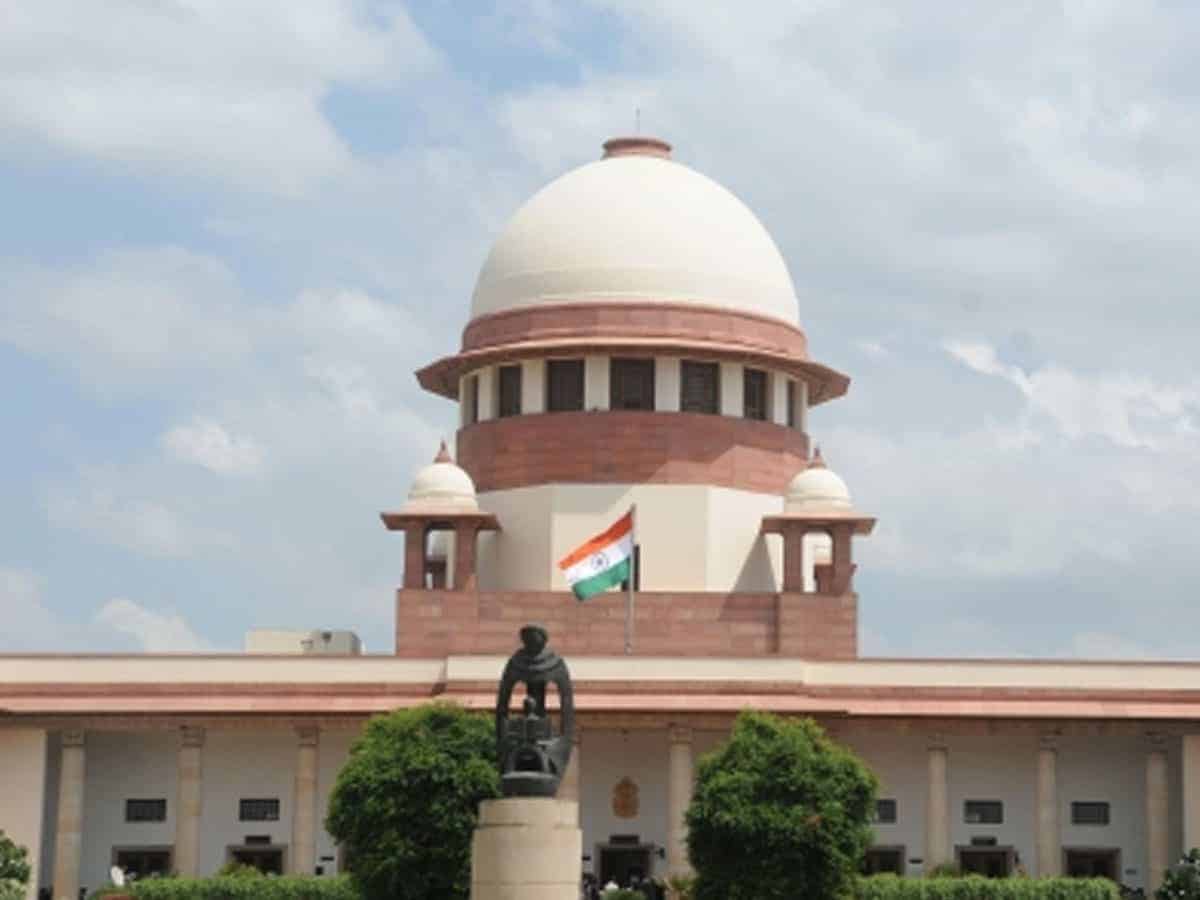
New Delhi: The Supreme Court on Tuesday observed that the Prime Minister or the Chief Minister do not have disciplinary control over the members of their Council of Ministers.
A five-judge constitution bench headed by Justice S.A. Nazeer and comprising Justices B.R. Gavai, A.S. Bopanna, V. Ramasubramanian, and B.V. Nagarathna, delivered the verdict. However, Justice Nagarathna delivered a separate judgment.
Justice Ramasubramanian, who authored the majority judgment, noted that suggestion made by an advocate that the Prime Minister, in the case of a minister of the Union of India, and the Chief Minister, in the case of a minister of the state should be allowed to take appropriate action, against the erring minister, is just fanciful.
“The Prime Minister or the Chief Minister does not have disciplinary control over the members of the Council of Ministers. It is true that in practice, a strong Prime Minister or Chief Minister will be able to drop any Minister out of the Cabinet,” he said.
The top court made this observation while holding that a statement made by a minister, even if traceable to any affairs of the state or for protecting the government, cannot be attributed vicariously to the government by invoking the principle of collective responsibility.
Justice Ramasubramanian said but in a country like ours where there is a multi-party system and where coalition governments are often formed, it is not possible at all times for a PM/CM to crack the whip, whenever a statement is made by someone in the Council of Ministers.
“Governments which survive on wafer thin majority (of which we have seen quite a bit), sometimes have individual ministers who are strong enough to decide the very survival of such governments. This problem is not unique to our country,” he said.
The bench noted that the country followed the Westminster model but the model itself became shaky after the UK saw the first coalition government in 2010, since the Winston Churchill caretaker ministry of 1945.
It said that it is interesting to note that in a report submitted by the Constitution Committee (UK) in 2014, under the title, “Constitutional Implications of Coalition Government”, it was pointed out that “collective ministerial responsibility has been the convention most affected by coalition government”.
The bench, however, clarified that it is not suggesting for a moment that any public official including a minister can make a statement which is irresponsible or in bad taste or bordering on hate speech and get away with it.
“We are only on the question of collective responsibility and the vicarious liability of the government,” it said.
For instance, when a minister makes a statement that women are unfit to be employed in a particular vocation, it said that this may reflect his insensitivity to gender equality and may expose his low constitutional morality. “The fact that due to his insensitivity or lack of understanding or low constitutional morality, he speaks a language that has the potential to demean the constitutional rights of women, cannot be a ground for action in constitutional tort,” said the bench.
The top court said needless to say that no one can either be taxed or penalised for holding an opinion which is not in conformity with the constitutional values. “It is only when his opinion gets translated into action and such action results in injury or harm or loss that an action in tort will lie,” said the bench.
A tort is a civil wrong that causes a claimant to suffer loss or harm resulting in legal liability for the person who commits the tortious act.
On October 5, 2017, a three-judge bench had referred the matter to the constitution bench to decide whether a public functionary or a minister can claim freedom of speech while expressing views in sensitive matters which are under investigation.
The case originated from a statement made by Azam Khan, then Uttar Pradesh minister, about gang-rape case victims. The top court was hearing a plea filed by a man whose wife and daughter were allegedly gang-raped in July 2016 on a highway near Bulandshahr seeking transfer of the case to Delhi. The plea also sought lodging of a case against Khan in connection with his controversial statement that the gang-rape case was a “political conspiracy”.



